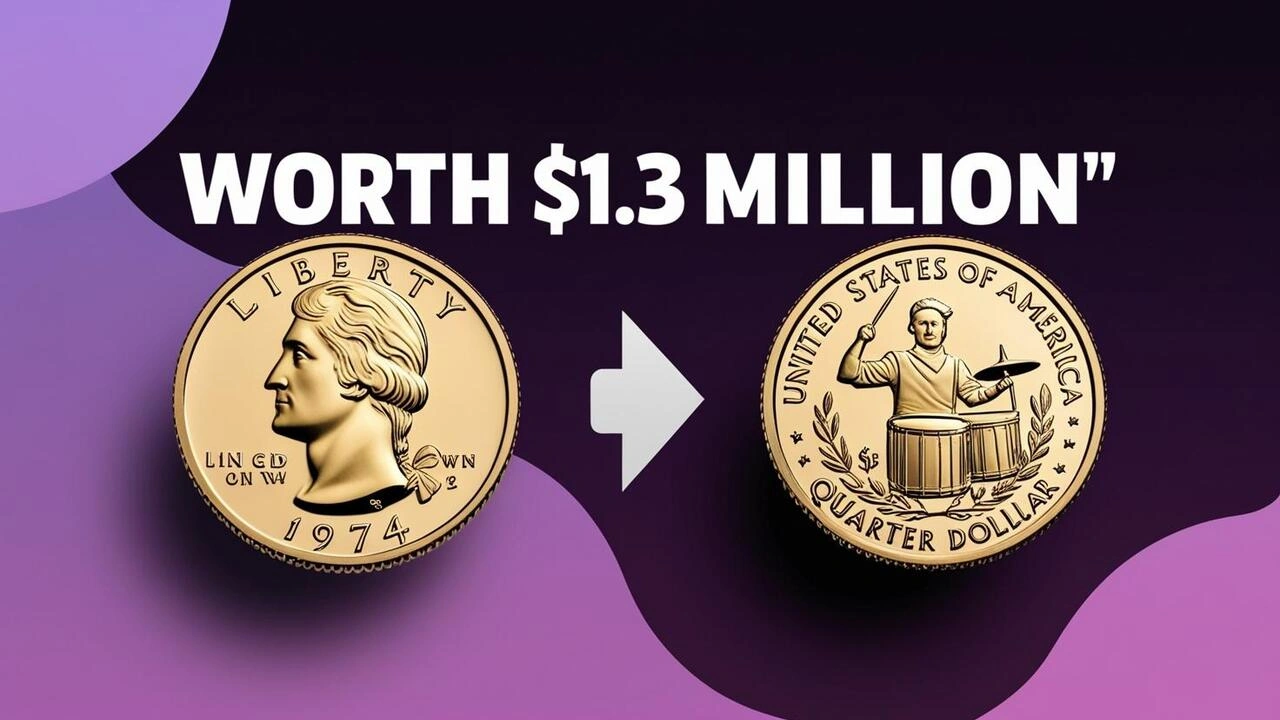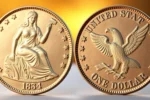The Bicentennial Quarter, minted in 1976 to mark the 200th anniversary of the United States, holds a special place in American coinage history. While most of these quarters are common, certain versions—particularly those with rare minting errors or in flawless condition—have gained significant value, with some reaching nearly $1 million. This article delves into the world of rare coins, focusing on the Bicentennial Quarter and other iconic coins worth millions.
Overview of Valuable Rare Coins
| Coin Name | Year | Estimated Value | Unique Features |
|---|---|---|---|
| Bicentennial Quarter | 1976 | Up to $1 million | Rare minting errors, unique design |
| Flowing Hair Silver Dollar | 1794 | Over $10 million | First U.S. federal dollar coin |
| Saint-Gaudens Double Eagle | 1933 | Up to $7.5 million | Limited surviving pieces, controversial history |
| 1913 Liberty Head Nickel | 1913 | Over $4 million | Unauthorized minting, rare and coveted |
| 1804 Silver Dollar (“King of Coins”) | 1804 (1834) | Over $4 million | Struck as diplomatic gifts, only 15 known |
| Queen Elizabeth II Million Dollar Coin | 2007 | Over $1 million | Weighs 100kg, crafted from 99.999% pure gold |
| Edward III Florin | 1343 | Over $6.8 million | Medieval coin, only three examples |
The Bicentennial Quarter: A Collector’s Treasure
Minted in 1976, the Bicentennial Quarter commemorates America’s 200th anniversary. Its reverse features a Colonial drummer, making it a patriotic symbol. While the majority of these quarters have little value, those with rare minting defects or in perfect condition can command significant prices, reaching up to $1 million. These quarters are not just currency; they represent a monumental moment in U.S. history, making them highly coveted by collectors.
The Flowing Hair Silver Dollar: A Piece of American History
The 1794 Flowing Hair Silver Dollar is one of the most valuable and historically significant coins in the United States. As the first federal dollar coin minted, it marks the beginning of the U.S. currency system. Due to its rarity and importance, one of these coins sold for over $10 million in 2013. It is a cornerstone of any collection focused on American numismatics.
Saint-Gaudens Double Eagle: A Controversial Gold Coin
The 1933 Saint-Gaudens Double Eagle is famous not only for its beauty but also for its tumultuous history. Most of these coins were melted down during the shift away from the gold standard, leaving only a few remaining examples. Due to its rarity and the disputes surrounding its ownership, it is valued at up to $7.5 million, making it one of the most sought-after gold coins in the world.
1913 Liberty Head Nickel: A Secretive Coin
The 1913 Liberty Head Nickel is surrounded by mystery. It is believed to have been struck without proper authorization, and only five coins are known to exist. This intrigue, coupled with its extreme rarity, has driven its value to over $4 million. The allure of owning a coin with such a shadowy history makes it a prized possession among collectors.
1804 Silver Dollar: The ‘King of Coins’
Known as the “King of American Coins,” the 1804 Silver Dollar was not originally minted in 1804 but in the 1830s as diplomatic gifts. Only 15 of these coins are known to exist, making them incredibly rare and valuable, with prices often exceeding $4 million. Their historical significance, coupled with their rarity, makes them a must-have for serious collectors.
The Queen Elizabeth II Million Dollar Coin: A Modern Marvel
The 2007 Queen Elizabeth II Million Dollar Coin, crafted by the Royal Canadian Mint, is a modern numismatic marvel. Weighing 100 kilograms and made of 99.999% pure gold, this coin is a stunning example of contemporary minting. Initially valued at $1 million, its worth has risen in line with increasing gold prices, making it both a collector’s dream and an investment.
Edward III Florin: A Medieval Rarity
Minted in 1343, the Edward III Florin is one of the rarest coins in existence, with only three known examples. Valued at over $6.8 million, this medieval coin provides a rare glimpse into the economic and trade practices of 14th-century England. Its scarcity and historical significance make it an invaluable treasure for numismatists and historians alike.



